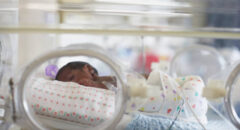 Deployment can put stress on just about anyone enlisted, however for pregnant women, it comes with even bigger consequences. A new study suggests, American soldiers who have babies after a recent deployment is at increased risk of preterm birth.
Deployment can put stress on just about anyone enlisted, however for pregnant women, it comes with even bigger consequences. A new study suggests, American soldiers who have babies after a recent deployment is at increased risk of preterm birth.
The finding comes from the analysis of data on nearly 12,900 births to U.S. soldiers from 2011 to 2014. Overall, just over 6 percent of the births were premature – three or more weeks early. That rate is lower than in the general population.
However, the preterm birth rate among those who had returned from military deployment within the previous six months was 11.7 percent. On average, these women were younger, made less money and had lower levels of education than other military moms.
“What’s important is the timing of deployment,” said study author Dr. Jonathan Shaw, a clinical assistant professor of medicine at Stanford. Women recently back from deployment were at higher risk for preterm birth, the study found.
“Pregnancies that overlapped with deployment or the period of returning home were much more likely to end in preterm birth, which has impacted not only on the health of the infant but also on the mother and family,” Shaw said in a university news release.
However, among women who’d recently returned, the degree of risk for premature birth did vary with their number of previous deployments. Chances of an early delivery were 1.6 times greater with one previous deployment, 2.7 times higher with two earlier deployments and 3.8 times greater with three or more previous deployments, compared with women who’d never been deployed.
Among soldiers who had babies within six months after returning from deployment, 74 percent were







